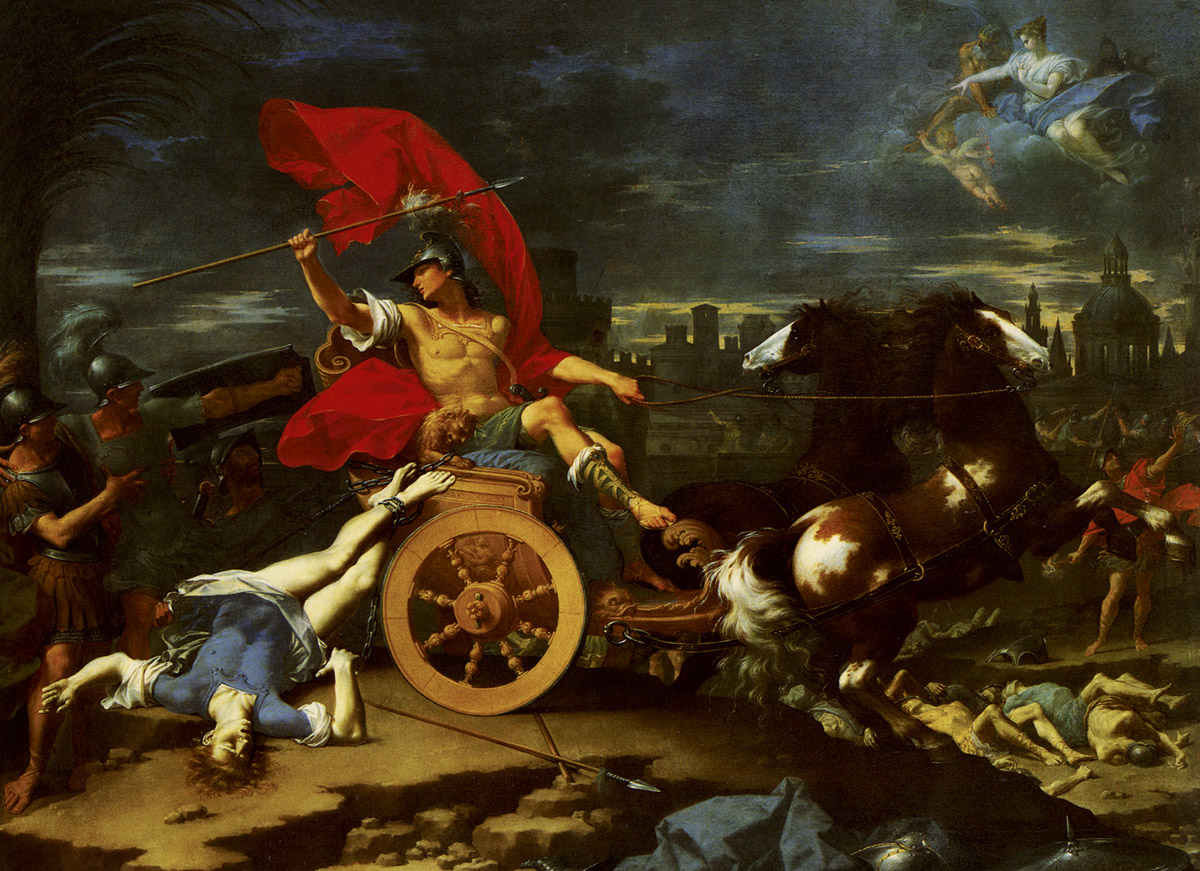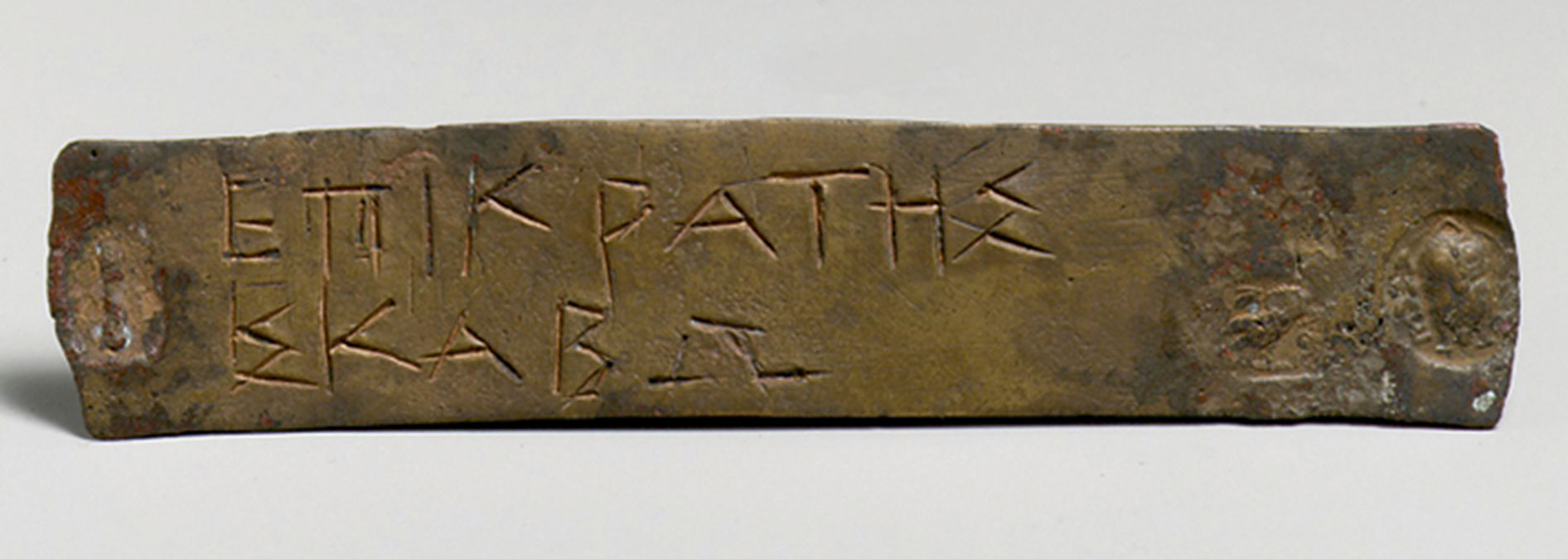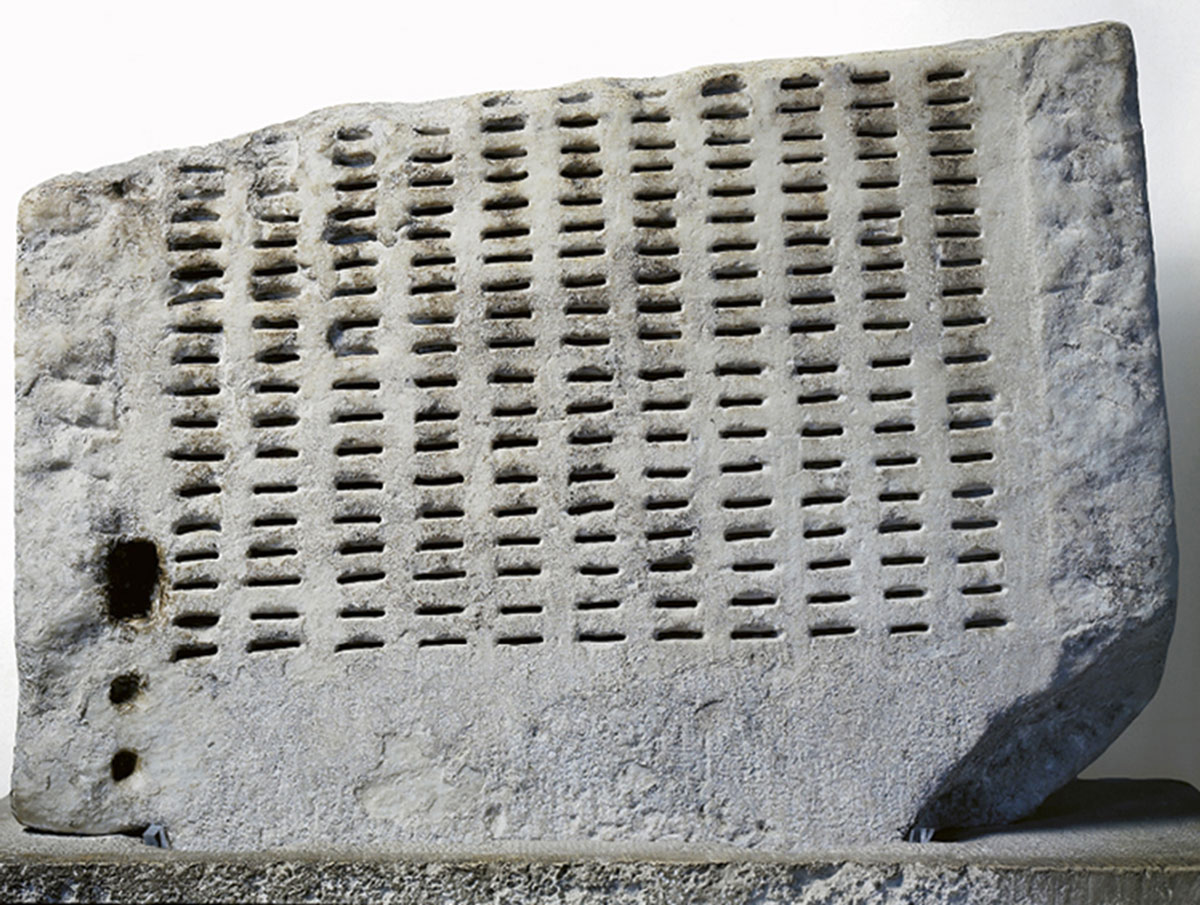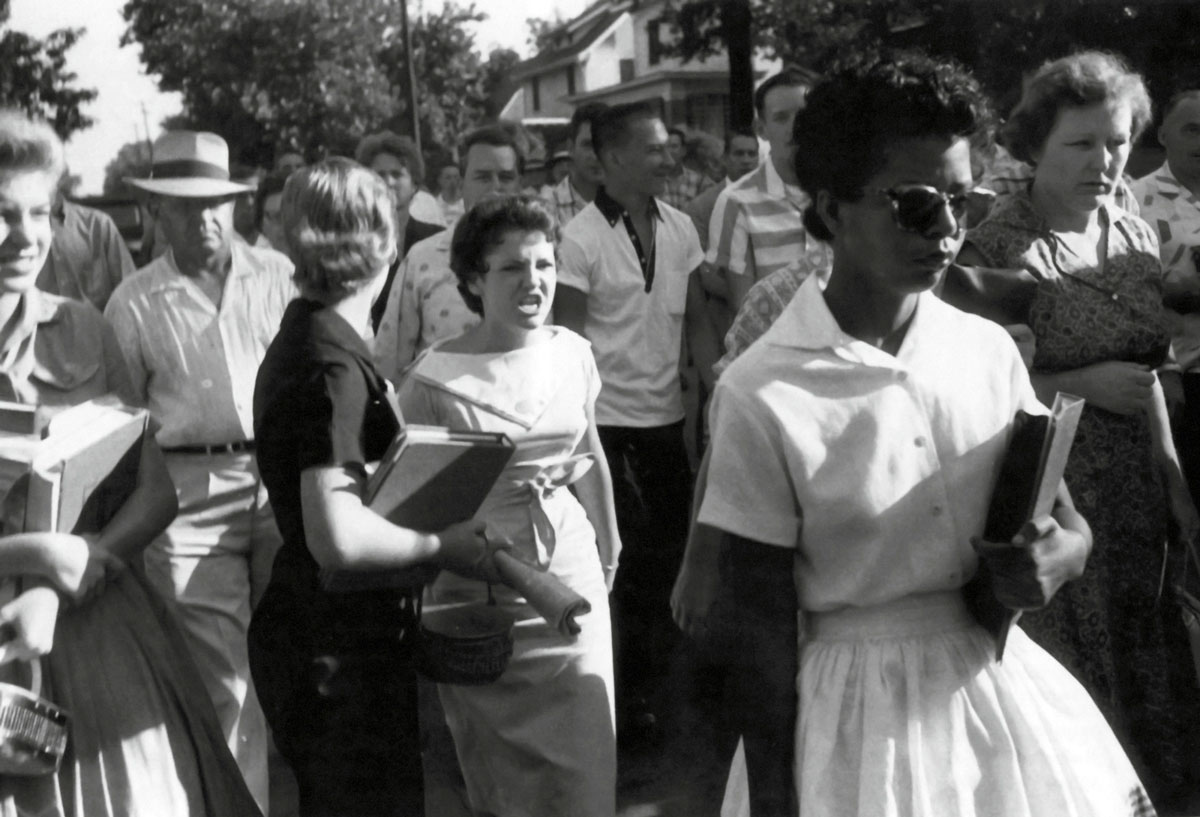Just Deserts: An Interview with Danielle S. Allen
Punishment, citizenship, and the construction of authority
Justin E. H. Smith and Danielle S. Allen

What are the differences in the ways different societies conceptualize punishment? What are the differences in the ways they enact it? And what can be learned by looking at other systems of punishment about the contingency and potential for transformation of our own system? Ancient Athens has often served as a model for certain of the modern world’s deepest aspirations in democratic government and philosophical rationality. At least since Nietzsche, it has also sometimes been approached as an extremely foreign land, whose values and practices, in their strangeness, can at the same time show just how strange our own are. How, now, does Athens look when we turn our attention to its conceptualization and enactment of punishment?
Danielle S. Allen is a political theorist who has addressed these questions in her work on both ancient Athens and modern America. Author of The World of Prometheus: The Politics of Punishing in Democratic Athens (Princeton University Press, 2000), Talking to Strangers: Anxieties of Citizenship since Brown v. Board of Education (University of Chicago Press, 2004), and Why Plato Wrote (Wiley-Blackwell, 2010), Allen is UPS Foundation Professor at the Institute for Advanced Study in Princeton, New Jersey. Justin E. H. Smith spoke to Allen by phone about the relationship between justice, punishment, and citizenship.
Cabinet: Your book The World of Prometheus offers a perfect way of giving historical depth to this issue on punishment, but it may also be interesting to reflect on how punishment in ancient Athens is relevant to our understanding of punishment in the contemporary world and, in particular, in the US. I’ve read both Prometheus and Talking to Strangers, your more recent book on Brown v. Board of Education, and one thing that struck me is how many of the same themes run through both books. You observe in Prometheus that the value of approaching punishment through the Greeks is that we’re able to “sharpen our thinking about punishment on the stone of the unfamiliar ancient world.” Does this remain for you the ultimate reason for studying ancient conceptions of punishment: that it gives us a point of access for understanding the problem of punishment itself by looking at an unfamiliar conception of it?
Danielle S. Allen: I can tell you the origin story of the book, which is simply that, as an undergraduate, I took a class on Athenian politics in which we read a lot of the speeches that were given in Athenian law courts. I was really taken aback by the fact that there was very little mention of imprisonment in those speeches, and I suddenly realized that I couldn’t imagine a world where prisons weren’t a major part of how we think about punishment. That captivated me, and I wanted to understand a world where imprisonment was not the dominant mode of understanding punishment. In that regard, the origin of the book was absolutely the shock of discovering, by looking at the ancient world, that our world is contingent, and that one particular contingency is the degree to which we use incarceration. It bears some thinking as to how we got there and what a world without extensive incarceration looks like.
Well, that might be right about our contemporary context; the ancient story is somewhat different. Generally—there are minor exceptions to this—Athenian methods of punishment strove to protect the body of the citizen, and this established a distinction between citizen and slave, between citizen and foreigner, resident alien, and so forth. The citizen stood out as having that bodily protection. In the early phase of the democracy, the main modes of punishing were monetary fines and exile. What happened, though, was that poorer citizens would find themselves imprisoned indefinitely: there were monetary penalties, and you would be thrown into prison until you’d paid them. So imprisonment wasn’t itself a penalty, except that poorer citizens began to have these indefinite periods in prison because they couldn’t actually pay the fine. Imprisonment as a penalty seems to have been developed in order to equalize the penal system, so that poorer citizens could pay with their bodies. In that regard, it was a different approach to the body than the physical punishment used for slaves and foreigners. It wasn’t really so much a matter of chastising or wounding the body, but rather of accepting the idea that the body could stand in for property. That’s what happened at that historical moment: the body became a form of property, and the person could use that property to pay their debts. Only the citizen had such rights and control over his own body.
Of course, a later development would be further equalization by stating that the rich can in fact no longer pay their way out with money.
Right, and that did not happen in Athens. There do seem to be some wrongs for which imprisonment became the basic penalty, and in that regard there was a bit of an additional equalizing, but for the most part there was still a differential situation where the rich could pay penalties and get out of things.
The central concern of the book is to discuss punishment as “a practice of constructing authority,” as you put it, and you are also concerned with what you call “the construction of desert.” This involves, as you describe, a good deal of contestation. It’s not that the authority of the state to punish in this or that way is just something the state announces, but it’s rather something that is always being contested. In part, the perpetual contestation in ancient Athens had to do with the absence in their judicial system of the role of public prosecutor. Everyone acts as their own prosecutor, and that’s always a form of contestation: everyone who wanted to see someone punished had to be able to make their case on their own. I’m wondering if you can say a bit more about how that worked, and also about the concern in the book to show the way in which authority was constructed in ancient Athens.
If you don’t mind, let me answer that in reverse, since the argument I wanted to make about authority—in its relationship to ideas of desert and contested notions of desert—I meant as a general idea. That is, I take it to be true of all political systems that punishment rests, to an important degree, on the ability to cause people to be quiet, to acquiesce. In fact, that idea is even built into our own language of punishment. We hear it in the language of “appeals.” When you appeal something, you keep calling out until there’s a moment where someone is forced to be silent. But that silence lasts only if we actually can maintain a silence more generally in the culture, which requires people to accept that this was deserved. And let’s leave out here the case of totalitarian or authoritarian regimes, and those that use terror. We can see the dynamic I am talking about actually in the recent Trayvon Martin events, where the state made a decision, but people were not quiet. People were so loud about it that the state had to return to its processes and to engage with them. And there will be a very real question all the way to the end of the process as to whether or not it will be possible for the state to achieve silence at the end.


But let’s get back to Athens. Athens was an interesting case study because the fact of contestation, which was central to the construction of the desert that grounds the moment of silence at the end of punishment, was itself, precisely as you said, a result of the fact that everybody was responsible for prosecuting their own crimes. Right from the start, when the person got to court, they had to justify the fact that they were there, since of course to be a plaintiff also prosecuting a crime is an ethically complicated position. Are you really there because you’re prosecuting a wrong? Or do you just dislike this person, or they’ve got things that you want and this is a way to get them? Are you just using the court as a way to attack them? There are a lot of reasons to suspect anybody coming forward in this way, and so that generates a framework of suspicion that makes questions of desert very alive. Nothing is really assumed about the outcome. So I think the relationships among desert, authority, contestation, and silence apply in all penal systems, outside of the context of totalitarian regimes, but in Athens, it was particularly explicit and so that made it a little easier to think about.
I wanted to turn to some of your central concerns in Talking to Strangers, where you develop themes that are recognizable from Prometheus, in particular the constitution of practical rules of citizenship through exclusion and acquiescence. You mention the case of the famous photo from Little Rock in 1957 that shows Hazel Bryan screaming at Elizabeth Eckford as she attempts to enter a recently desegregated high school, and note that Hazel is insisting on her habitual prerogatives, with power behind her to back up the demand, while Elizabeth is realistically acquiescing. In this respect, the situation as you describe it is perfectly, um…
Normal, in a weird way.

Yes, but then what’s not normal is the power the photo has when people see it in newspapers the next day, particularly in the North, and it becomes abnormal in the way people understand it, and so authority begins to be contested at that moment. This is very similar to the Trayvon Martin case where there was a normal legal procedure that determined that George Zimmerman should not be arrested, and people weren’t having it. But this brings up questions concerning the nature of the authority of the state, where this authority is coming from. You argue that it’s coming from simply what people are willing to tolerate. Is this a different dynamic than the one at work in ancient Athens?
It’s definitely the case that one of my goals in World of Prometheus was to draw attention to the importance to social and political life of moral commitments and contestations, so that we could see that the state, institutions, and structures of authority rest on foundations of ideas, basically, and not merely, say, on the foundations of economic incentive. In effect, the big thrust of the project of studying punishment was to work against the dominance of the belief that if you understand the economy and market rationality, you understand the whole of the basis of political stability and political health. That project of trying to open up analytical space for seeing the connection between moral contestation, political stability, and political outcomes continued in Talking to Strangers. You’ve definitely put your finger on that by bringing up the photo, where my point in analyzing it is partly to show the ways in which shifts in what people consider to be legitimate or illegitimate, noble or shameful, and so forth, fundamentally shift the ground on which political institutions and state authority can operate. This is something that a lot of people know; all the people we identify in some sense as prophets know this. Martin Luther King, Jr. was such a prophet. Cornel West’s prophetic pragmatism taps into exactly the same idea. And I would even say that this understanding lies behind the phenomenon of culture jamming that AdBusters has made central to how people think about the Occupy Wall Street movement. Those prophets and movements like OWS are all directed at this idea that authority and institutional capacity rest fundamentally on moral ideas and, therefore, are changeable and malleable to the degree that moral contestation emerges. So, yes, you’re right to say that what the state can do depends on what people are willing to tolerate; I am indeed saying that. I’ve been drawing a line between authoritarian states, on the one hand, and others, and that line is really about the way in which fear and silence operate; here I’m drawing on the work of Timur Kuran. One of the things that totalitarian and authoritarian states do is instill enough fear to silence people, and cause them to lose the ability to see the genuine shape of moral opinion; they lose the ability to see instances where moral opinion doesn’t align with the state, and places where there are lots of allies who agree that it doesn’t align and who together with them might be able to do something about it. In free societies where there’s an active public sphere and there’s room for dissent and so forth, one of the great benefits is precisely that moral contestation can emerge and do what I would consider the necessary rectifying work of changing the landscape of moral opinion, so that institutions can shift.
You’re making a fairly clear-cut distinction between totalitarian regimes and the regimes in free societies. It’s a useful distinction, but I wonder if this is also, in some cases, a vague distinction, and that in fact we have some cases, such as the US right now, where you do have a very active public sphere and in some sense a freedom to contest laws, but you also have a large percentage of the population that is relying on unreliable media and is not provided with the equipment to participate in the public sphere. Does this diminish the force of the distinction?
Yes, I’ve been drawing a bright line as a matter of conceptual distinction. I think looking at any particular society probably does require being more careful in tracing the degree to which the free model obtains and the degree to which the silencing model obtains. In some sense, the best place to see where a silencing model obtains in our own country—and this does intersect with punishment—has to do with the world of undocumented immigrants, who have a vulnerability to the penal apparatus that absolutely blocks expression and means we don’t hear the full range of voices and thoughts on the moral questions relevant to thinking about immigration. Fear is operating for undocumented immigrants in a way that reduces what I’ve been describing as the power of the appeals process, a sort of call and response process where state institutions know in their DNA that one of the things they’re going to have to deal with is whether they might fail to achieve silence or quiet at the end of a process. If that’s the case, they just have to go back to it and deal with it. And in the world of undocumented immigrants, there is a silence that has already been established because of the vulnerability to the penal apparatus that results from the lack of legal status.
This reminds me of something from World of Prometheus, where you emphasize that in Athens contestability was controlled by limiting the numbers and classes of people who could make claims about desert and speak out about the injustices or justices they were experiencing. Since you highlight this in both the cases of Athens and the US, do you think perhaps the limitation of who’s able to participate in the contestation is a systematic one, that is to say, a limit that is always going to be there in democratic societies?
I think it’s systematic in the sense that democracies have historically invested a lot in defining citizenship. But that’s a hard question to answer because the grounds for the definition of citizenship have actually been quite different in different democracies. I don’t think it always has to be the case that there be systematic exclusions in a democracy, though it has been the case historically that there are. Take the example of Athens. In the first moment of founding, the major thing that happened is that regardless of wealth, men would all become part of the body of citizens and have political rights. The equality that was established between the rich and the poor was grounded partly in the notion that each man would become the head of a household and therefore represent the membership of the household in the polity. The men all became equal by being empowered as patriarchs, and the power that made them equal required the submission of other people. In the American case, one can say something similar about how whiteness has worked. That is, a way to make poor and wealthy whites equal to one another was to empower both groups in respect to another category: the non-white. There does seem to be a process whereby the empowerment of one disempowered constituency generates some need to disempower another constituency, in order to give content to the power of the now-included, but previously disempowered, group. Historically this does seem to have happened in a systematic way. I don’t think it always has to happen, but I do think that avoiding it requires more self-consciousness about that dynamic and then a revisiting of the question of how we understand the sources of individual empowerment.
I wanted to turn to a passage you discuss from Plato’s Republic, where Leontius, in approaching the city walls and finding there the dead bodies of executed criminals, tries to look away, but ultimately gives in to the temptation to feast his eyes on them. You say that Leontius rejects the political principles of the state in turning away from the bodies and in exhibiting discomfiture. But aren’t the bodies supposed to discomfit? Isn’t it the case that in displaying the corpses of executed criminals, a state wants to make people uncomfortable, and in turning away, Leontius is responding in the expected way, in the way that maintains the acquiescence desired by the state?
I think it’s complicated. There are a lot of cases in the history of punishment and the literature on punishment where actually exalting in the destruction of the body or the pain of the body is part of the goal, and where there’s a sort of festival relationship to that destruction. An absolutely extreme version would be the behavior of the bacchants in Euripides’s The Bacchae, which I take not to be exceptional but just extreme—exceptional only in being extreme, not in being abnormal. To give another example, think about Achilles on the battlefield with Hector’s body. What he did was similarly a cause of revulsion only because it was extreme. If he’d limited his mutilation of the body and then handed the body back, that would have been okay and nobody would have had any problem watching that behavior. The tricky thing in the passage from the Republic is that my reading really comes out of an effort to understand what Plato is doing there. It’s a very precise intervention in the Athenian conceptual universe, and he uses the story to prove that there are three parts of the soul instead of two parts. That’s a radical transformation of basic Athenian self-understanding. What happens in that moment is that the Athenian passion, orge, which was a combination of anger and eros, dies and gets split into the thumos, or the spirited part of the soul, and then the third, erotic part. Because Leontius represents for Plato a proof of the existence of a soul different than what the Athenians thought normal, I take it that Leontius also has to be an example of a change in behavior.
I’m interested in the figure of Prometheus in your work, and also the way you wrap up your treatment of him with a critique of the Foucauldian power-knowledge model of punishment. Your alternative is rather more hopeful than Foucault’s, and for reasons that I think were contained in nuce in your answer to my previous question, namely, that you see subjectivity as important. You think that we can acknowledge the objective situation that our bodies are in, and that’s worth doing, so that Foucault is not wrong. But at the same time, subjectivity is ineliminable, and for you it’s also the key engine of contestation in society. Contestation, in turn, is for you what’s necessary for becoming more self-aware about the situation and improving things. Now Prometheus, bound to the rock, having his liver pecked out, claims to be “acknowledging necessity and speaking anyway.” This is very poignant, but at the same time perhaps Prometheus is less optimistic than you are, since he might just be taken as saying: “Well, you know, I’m chained to this rock, I might as well keep talking even though it’s not going to do any good.” And this makes me wonder what work Prometheus is doing for your argument, and how he might be seen as aiding your subjectivity-centered account of contestation, rather than Foucault’s pessimistic take on the objective predicament of our bodies.

I see your point about Prometheus and the fact that his desire to acknowledge necessity and speak anyway isn’t necessarily a very optimistic view. In fact, Tommie Shelby, a philosopher at Harvard, has made some nice arguments about dissent for the sake of authenticity, not because you think you’re actually going to change anything. This would be a variation on being chained to the rock but speaking anyway, because that’s my authentic self and that’s what I need to do. The reason, then, that I have a more hopeful view doesn’t have to do with thinking that that subject position is wrong, but rather that it doesn’t get us to the end of the story because of the kind of thing that language is. Language is not owned by any one of us; it’s a collective property. It exists only as a collective property, and so any contribution that anybody makes, even if they make it in the mode of the authentic dissenter, has the capacity to shift the content and meaning and consequence of that collective property. As long as people keep speaking, and as long as that speaking comes out of their subjectivities, I think we have the seeds of change.
This does sound much more optimistic than the power-knowledge model you criticize.
Yes. That is my fundamental disagreement with Foucault: that there’s a lot more that can be said about change than Foucault thought could be said.
Danielle S. Allen is UPS Foundation Professor at the Institute for Advanced Study in Princeton, New Jersey. Her books include The World of Prometheus: The Politics of Punishing in Democratic Athens (Princeton University Press, 2000) and Why Plato Wrote (Wiley-Blackwell, 2010). Allen is currently working on books on citizenship in the digital age and education and equality.
Justin E. H. Smith is professor of philosophy at Concordia University in Montreal. He is the author of the forthcoming Nature, Human Nature, and Human Difference: Early Modern Philosophy and the Invention of Race (Princeton University Press).